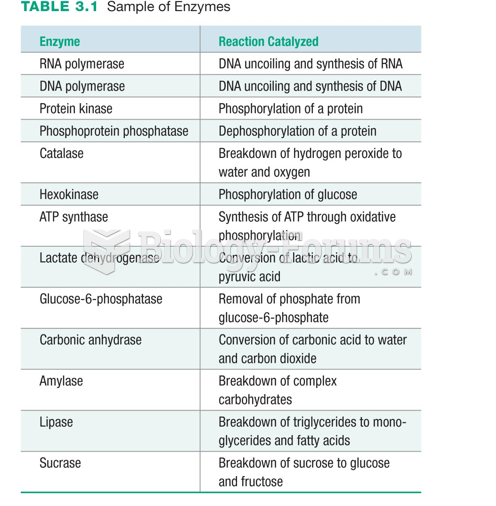|
|
|
Excessive alcohol use costs the country approximately $235 billion every year.
In 1844, Charles Goodyear obtained the first patent for a rubber condom.
The top 10 most important tips that will help you grow old gracefully include (1) quit smoking, (2) keep your weight down, (3) take supplements, (4) skip a meal each day or fast 1 day per week, (5) get a pet, (6) get medical help for chronic pain, (7) walk regularly, (8) reduce arguments, (9) put live plants in your living space, and (10) do some weight training.
The calories found in one piece of cherry cheesecake could light a 60-watt light bulb for 1.5 hours.
The first monoclonal antibodies were made exclusively from mouse cells. Some are now fully human, which means they are likely to be safer and may be more effective than older monoclonal antibodies.







